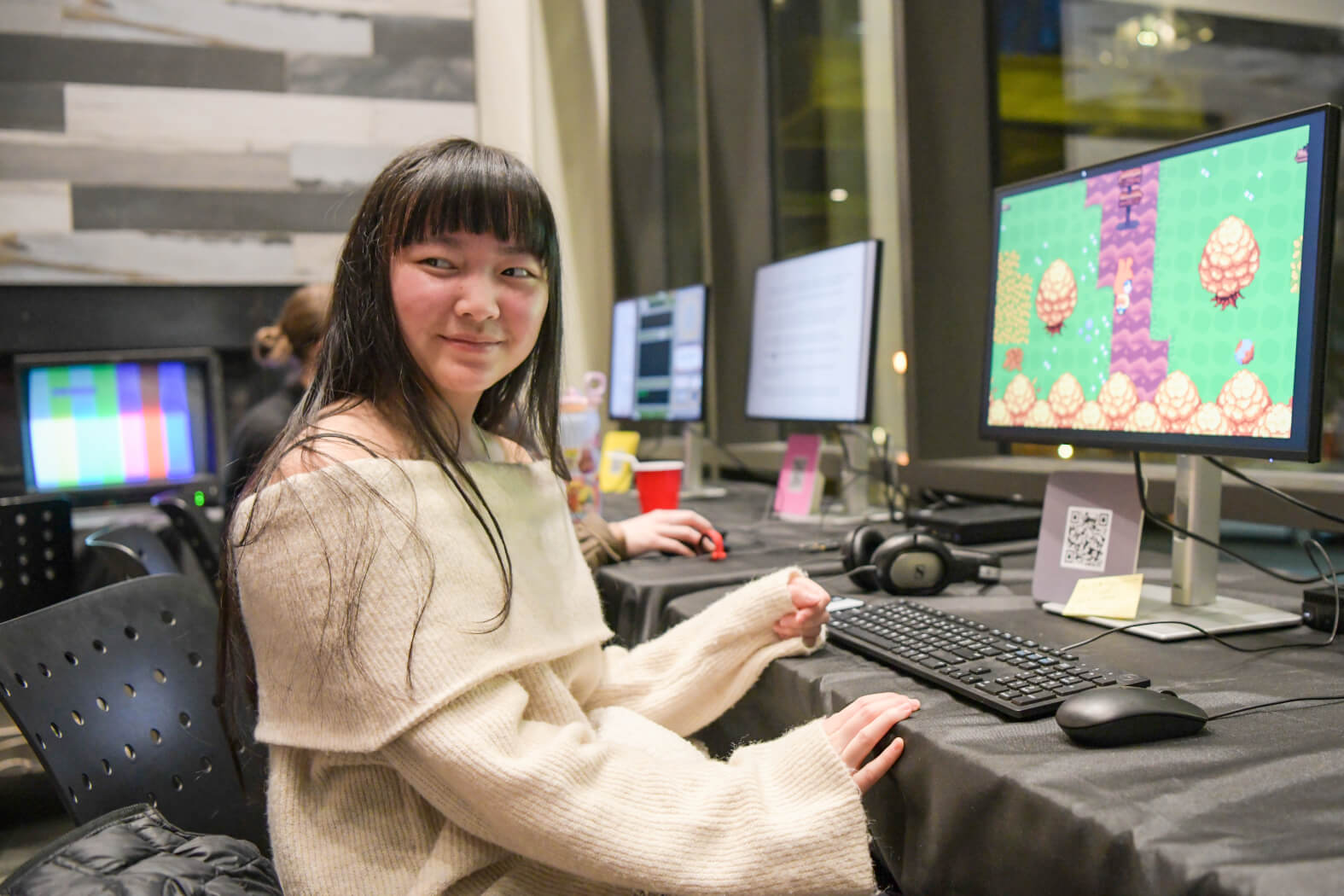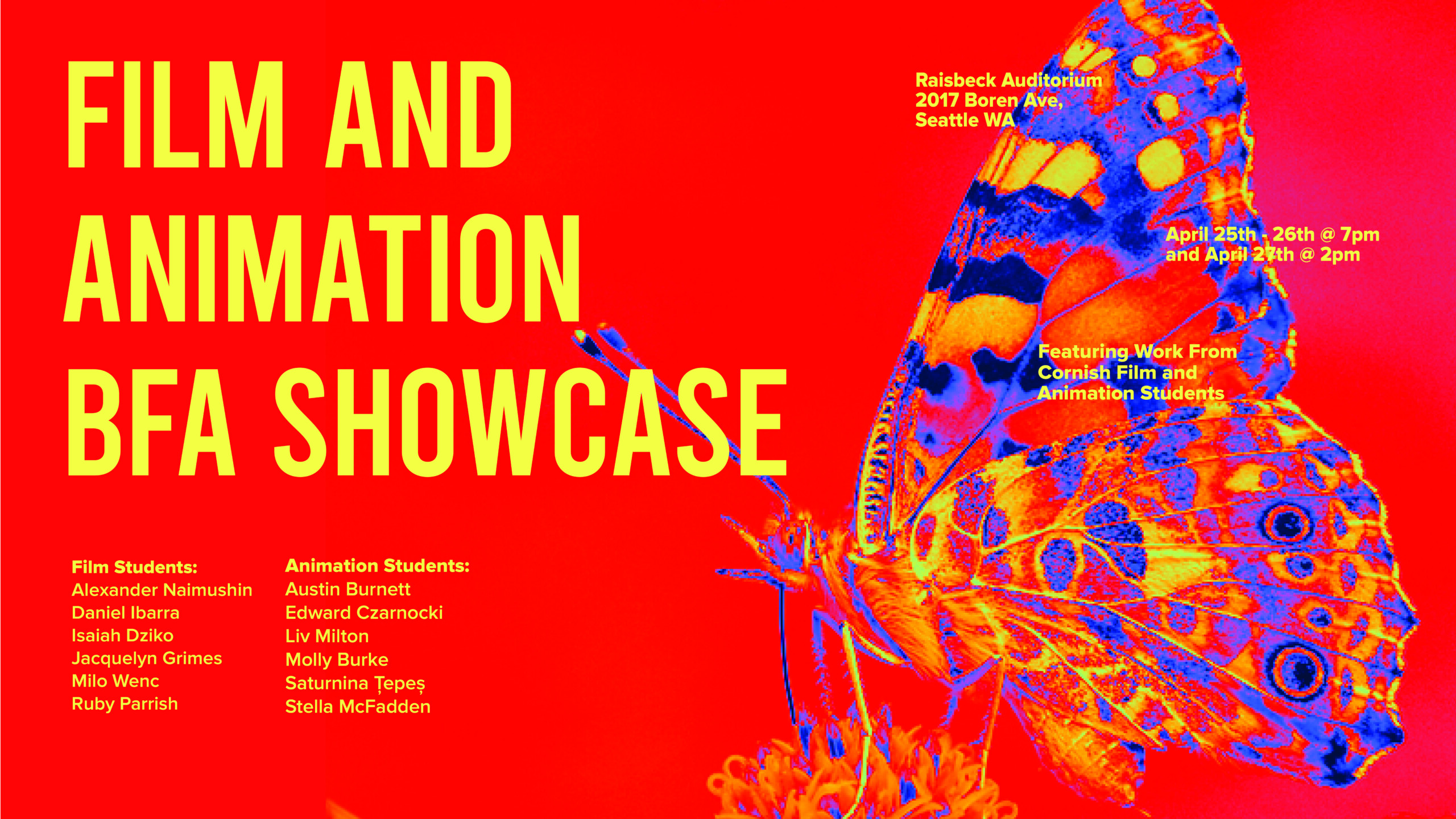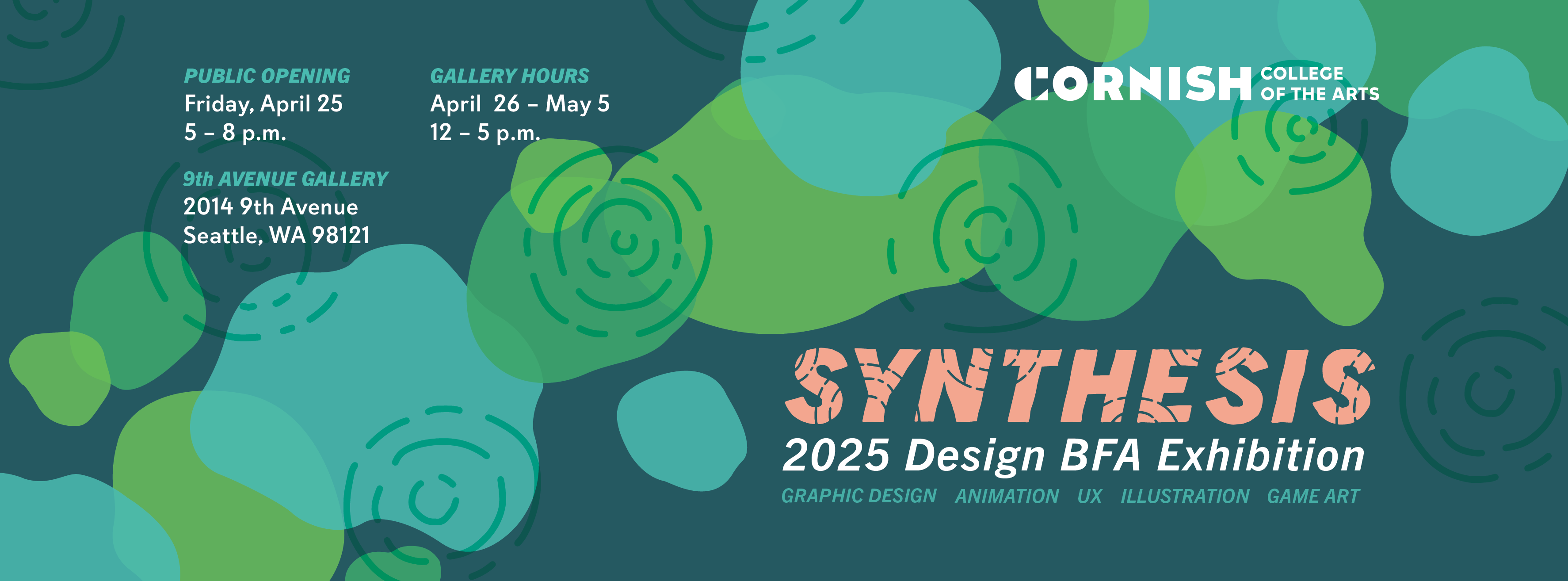
Game Art
Pursue your passion for game development in the heart of Seattle, home to one of the largest indie gaming scenes in the United States!
Apply How To Apply

Overview
Game Art, BFA
The Game Art degree path provides a dynamic and balanced education for students interested in careers in the game industry or other professional fields engaged in the creation of interactive visual media for entertainment, education, and cultural communication. Students learn how to create game art and develop games informed by a critical understanding of games as cultural media using a variety of aesthetic strategies. Game artists in the program learn to work at the intersection of art and design, experiment with game engines and related technologies to pursue new expressive goals through gamemaking, and collaborate with other artists in a variety of fields to realize game projects.
Our curriculum in Game Art takes an art-centric approach to gamemaking, emphasizing the creative skills and technical practices required for producing art for games while also integrating relevant learning in design and technologies native to game development. You will develop skills in producing 2D and 3D visual art for both digital and analog games, art concepting, interactive narrative design and worldbuilding, and creative writing for games. In addition to gaining proficiency in industry-standard art creation software, you will also learn how to work with game engines like Godot and Unity to create game projects individually and in collaboration with others. The program also provides opportunities to collaborate with Seattle-area game studios and tech companies, as well as game industry professionals visiting our studios or teaching their craft within the program. In the final year you will have produced a portfolio with diverse works and a capstone project showcasing your creativity and refined skills. Game artists participate in semesterly exhibitions, culminating in a co-produced annual BFA exhibition in collaboration with students in Graphic Design, Illustration, Interaction Design, and Interior Architecture.
Program Information
Program Type: Major
Degree: Bachelor of Fine Arts
School: Cornish College of the Arts
Campus: South Lake Union
Learning Format: In-Person
Duration: 4 years
Start Date: August, January
Credits: 120

At-a-Glance
Core Skills & Techniques
Game artists in the program will:
- Create game art projects that support a variety of aesthetic strategies
- Collaborate with diverse artists and designers to realize game projects
- Design innovative game art that reflects a critical understanding of games as cultural media, including the historical, political, and aesthetic aspects of creating games
- Communicate effectively about game art to professional and public audiences
- Practice technically sound, adaptive workflows and revise artwork in response to game project constraints
- Develop career strategies informed by cultural research and analysis of the contemporary game industry
Core Software
Game Development Engines:
- Unity: A versatile game engine for creating 2D and 3D games, simulations, and other interactive content.
- Unreal Engine: Known for high-quality graphics and used in both game development and animation.
3D Modeling and Animation Software:
- Maya: For creating 3D models, animations, and simulations.
- Blender: An open-source tool for 3D modeling, animation, rigging, and rendering.
- ZBrush: For sculpting high-resolution models.
2D Art and Animation Software:
- Adobe Photoshop: For creating textures, concept art, and image editing.
- Adobe Animate: For creating vector-based animations.
- Adobe After Effects: For compositing, motion graphics, and visual effects.
Storyboarding and Pre-Production Tools:
- Storyboard Pro: For storyboarding and animatic creation.
Learning Outcomes
The program includes guest lectures, workshops, critiques from industry professionals, and emphasizes portfolio development to ensure students are job-ready upon graduation.
Graduates can take positions in the game industry as artists or creative designers at indie or large studios, enter professional fields engaged in the creation of products or media using digital illustration or animation, including interactive visual media for entertainment, communication, or education.





